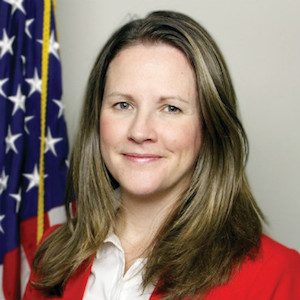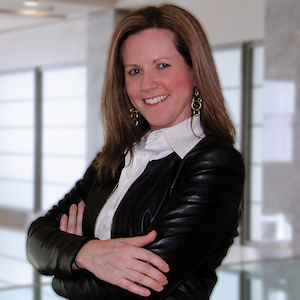
 Beth Angerman, Executive Director of Unified Shared Services Management, GSA
Beth Angerman, Executive Director of Unified Shared Services Management, GSA
Beth Angerman is the mind behind shared services for the federal government. Over the past year, her office has “studied the current state of affairs for mission-support functions across government, collected performance data, spent time with customers and providers to better understand why we’ve seen limited adoption of shared services, and provided tools to agencies who are considering sharing of administrative functions to help them understand what it means to buy a service,” she said. As IT modernization becomes more imperative for federal agencies, shared services will play a major role. “We know that agencies are heavily dependent on the administrative systems and skills to deliver their mission to the taxpayers, and it’s critically important that we stabilize and modernize those services to optimize the government’s performance at large,” Angerman said.
Can you talk about the biggest challenge you’ve faced in your career? How did you conquer that challenge?
It’s both exciting and scary to be a change agent for something the size of the federal enterprise, and trying to convince agencies to change the way they do business so that we can recognize efficiencies government-wide, which sometimes means prioritizing the whole over the parts, can be a very hard position to be in. It really does test one’s ability to build strong relationships, earn the trust of others and remain steadfast in your own guiding principles. Trying to change government and move people in a new direction when that direction feels uncomfortable and risky to them is a very real part of my life. I work on this every single day. I think it’s important to believe in what you do, because having passion about something makes people want to listen to you. And when people listen, you get the opportunity to build a relationship — and people are what matters the most when you’re trying to move a needle.
What would you say to young women who are thinking about a career in technology or related fields, or just starting out in their careers? What’s the best advice you could offer for success?
My advice is both to listen and to speak up. You have to be capable of doing both to build professional credibility and to earn the respect of others. Don’t be afraid to say the wrong thing, to make mistakes. Actually failing will make you better. But also take the initiative to be informed. While technology moves fast, there is also a great amount to be learned from the people who have served in government for more years than the new generation has even been alive. Listening to their stories and learning how government really works will make the implementation of technology easier and more effective.
Who/what inspired you to join your field?
I work in government because I have two children, and as I watch the way the world is changing, I feel a huge sense of responsibility to help make this a better government for them so that they, too, are able to enjoy the great benefits of this country the same way I have. If there aren’t people willing to stay in government and effect change, then how can we ensure a bright future for their generation? I’m not ready to watch from the sidelines. I can say with great sincerity that I never anticipated that I’d be running shared services for the federal government, but I am inspired every day by the people around me who are trying to help make agency missions more effective.
Why is it important to you to empower women and other minorities to join more technical and technology-related fields?
Because you don’t know what you don’t know. Having differing points of view with people from different backgrounds, different places, and different experiences will help make any project more successful because you can design strategies and solutions that work for the masses. As we think about technology and the pace of change, we must anticipate a world where the users of tomorrow are vastly different than the users of today.






